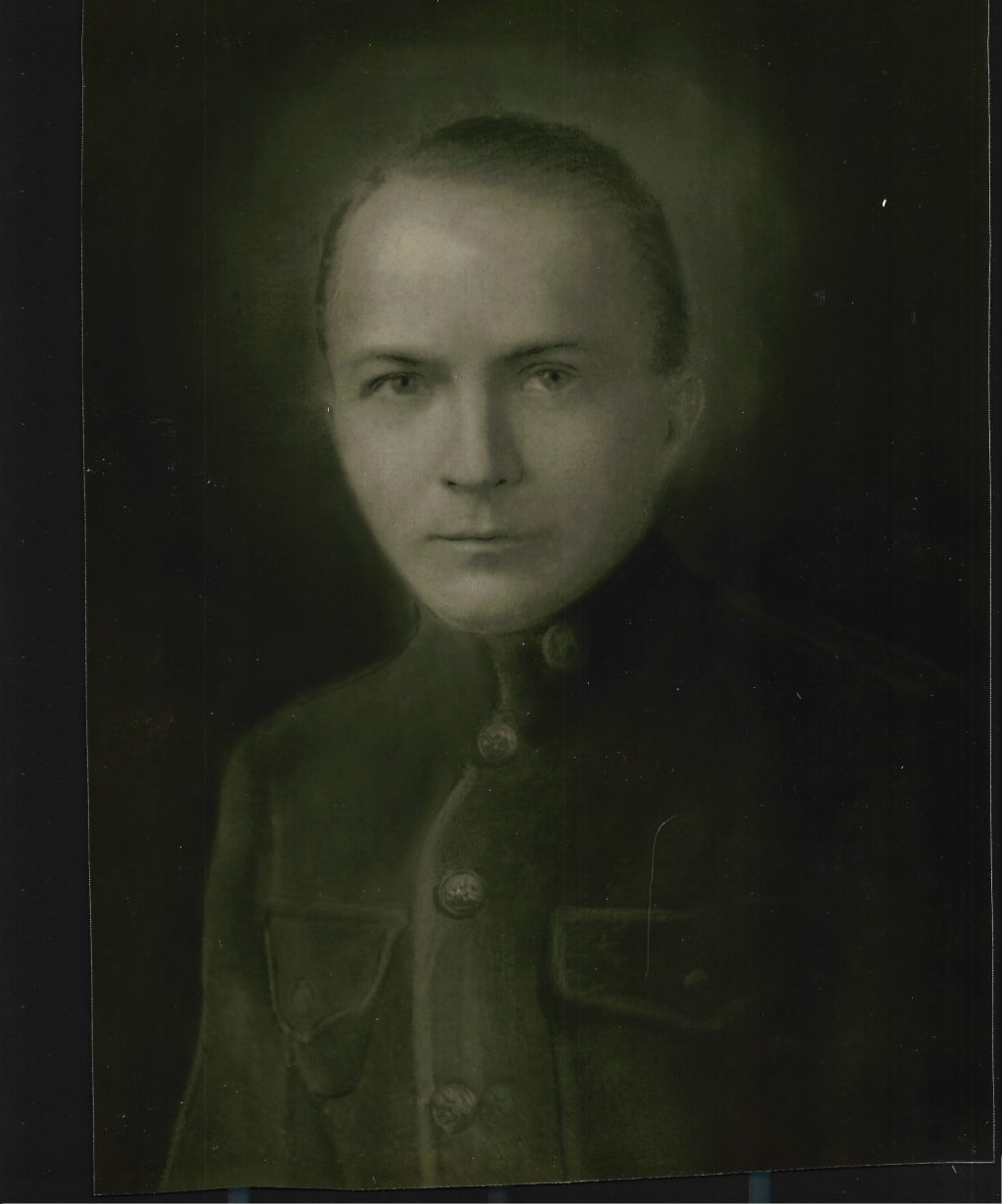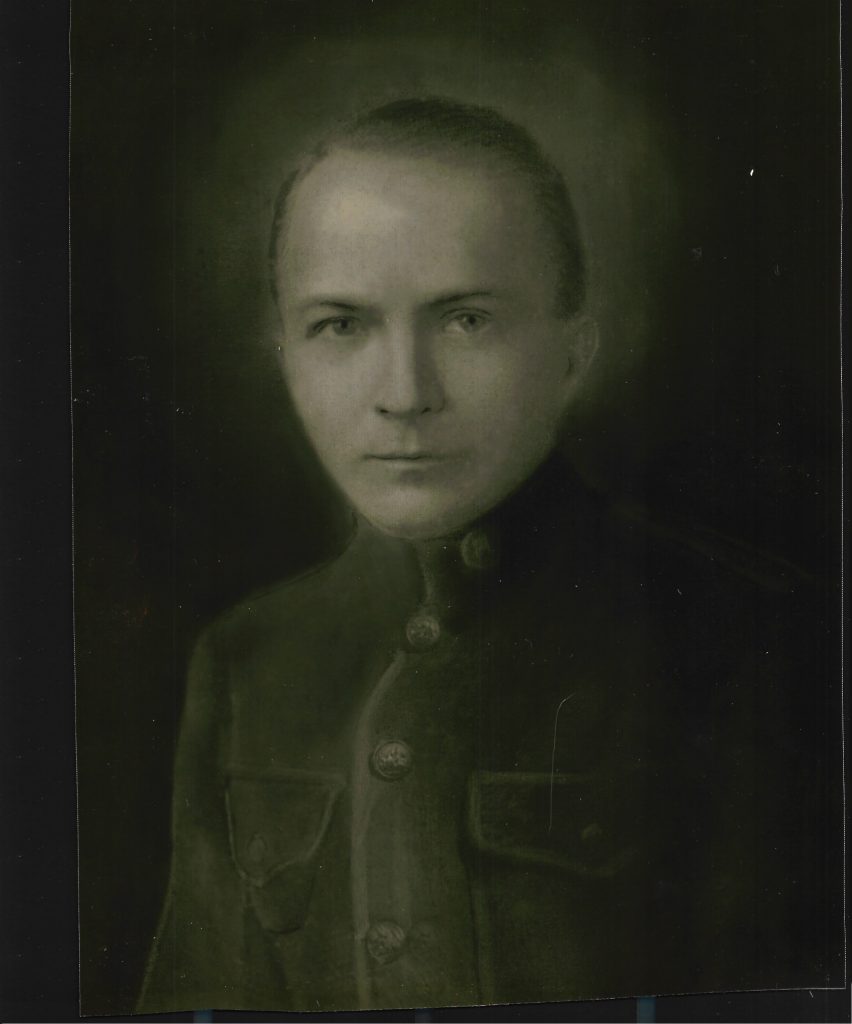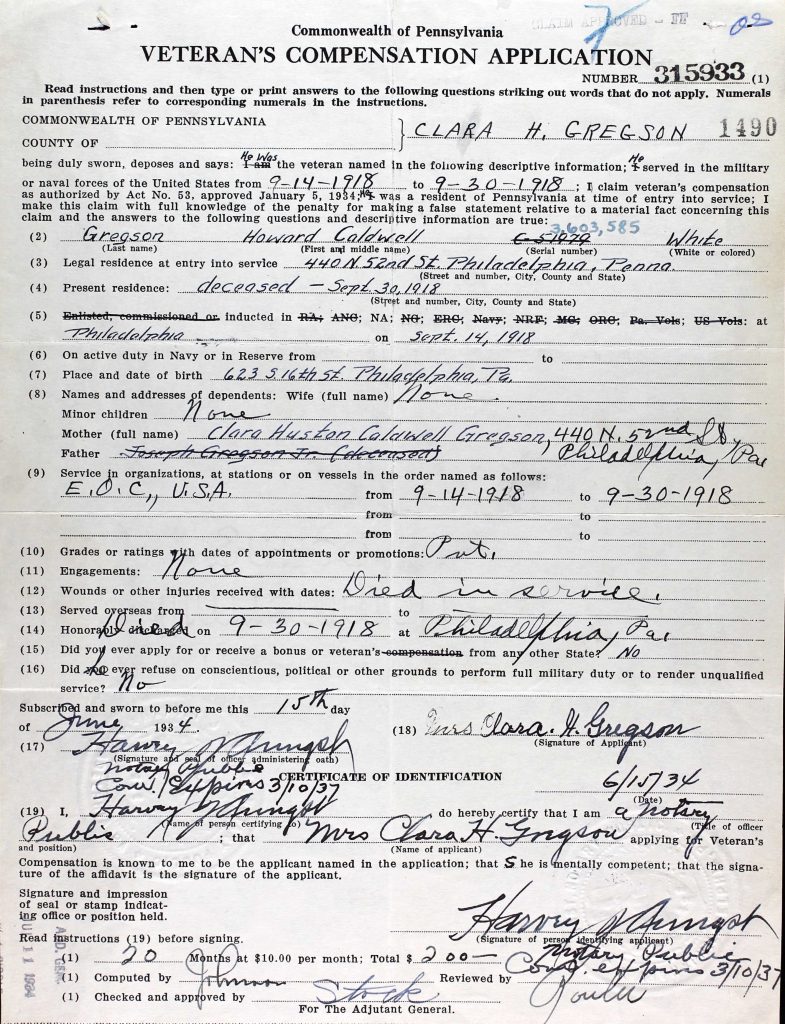
Howard Caldwell Gregson
His pandemic death ended a brother’s childhood.

On September 29th, 1918, twenty-seven-year-old Howard Caldwell Gregson collapsed on the front stoop at his home on North 52nd Street in Philadelphia. Less than 12 hours later, Howard was dead. He had enlisted on September 14, 1918 and went for basic training for “E.O.C.” duty or “Explosive Ordnance Clearance.” Influenza broke out during basic training, and Howard (along with other sick soldiers) was sent home to recover. After taking the train back to Philadelphia, he arrived home before succumbing to lobar pneumonia, a common outcome of this strain of influenza, particularly among young people. At 27, Howard was an elder draftee, but still a young man in good health whose death came as a shock to the Gregson family. In 1918, the Gregsons were Clara Gregson (mother), Howard, Florence, Herbert, and Wesley. Herbert Gregson died in 1919 under mysterious circumstances while enlisted with the Merchant Marine. So, influenza was one of a series of losses for the Gregson family, but Howard’s quick death from influenza was one of the most shocking.
Before his enlistment with the U.S. Army, Howard taught technical drawing at West Philadelphia School for Boys and was the acting head of the household in the absence of his deceased father Joseph Gregson, Jr. who died in 1908. Howard Gregson’s teaching job kept the family fed, if not well-off. Without a breadwinner, Wesley and his mother found themselves in dire economic straits. His mother took in boarders, but Wesley struggled to find work at 14. Decades later, Wesley told his daughter Janet that the pandemic ended his childhood.

In the early days of outbreak, Wesley Gregson remembers the family doctor, Herbert Carpenter riding by the Gregsons home in a car. Wesley ran outside to see if Dr. Carpenter could help them treat Howard; the doctor shook his head sadly and said there was nothing he could do. Howard’s body was laid out in the family parlor and interned on October 4th, just before city officials placed a moratorium on public funerals in a futile effort to slow influenza’s spread.
When Howard died, his sister Florence (“Florie”) signed the death certificate; according to Wesley’s daughter Janet, Aunt Florie never contracted influenza. Clara Gregson never became ill either, but as an older woman weathering the Great Depression, she relied on Veteran’s Compensation for support. In 1934, Clara’s application was approved for $10 per month for twenty months. Howard Gregson’s service was short—just sixteen days. Yet because of that service, he managed to provide for his aging mother long after his death.

Contributed by Janet Gregson, Niece of Howard. Transcribed by Bethany Johnson, MPhil, M.A.
